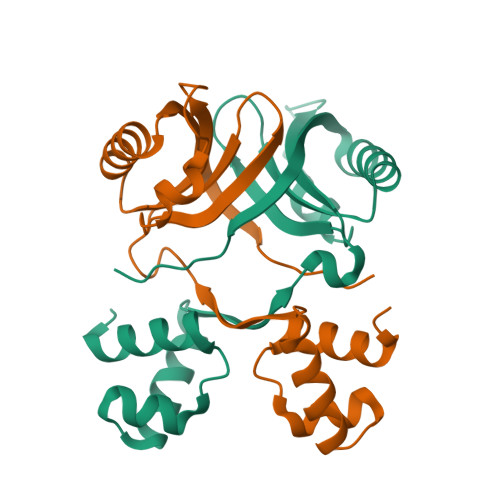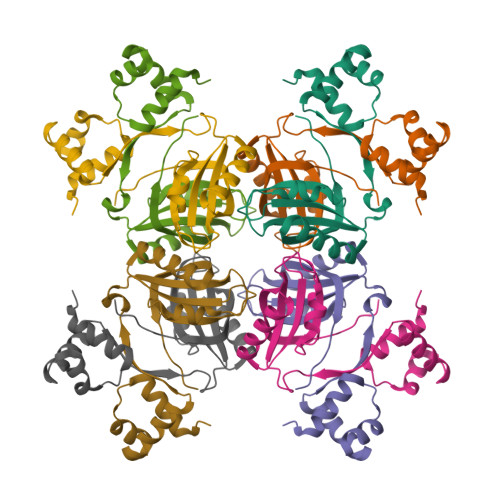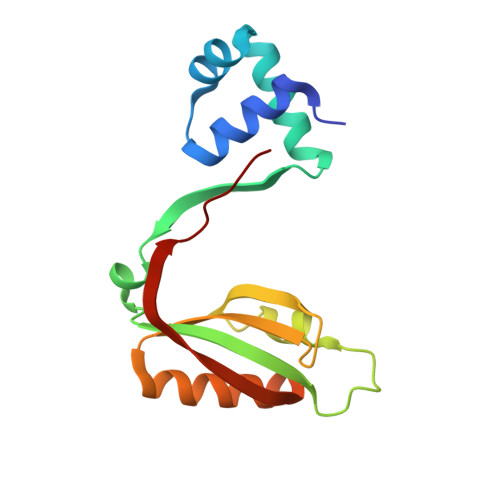Mechanistic Insights from the Crystal Structures of a Feast/Famine Regulatory Protein from Mycobacterium Tuberculosis H37Rv.
Shrivastava, T., Ramachandran, R.(2007) Nucleic Acids Res 35: 7324
- PubMed: 17962306
- DOI: https://doi.org/10.1093/nar/gkm850
- Primary Citation of Related Structures:
2IVM, 2VBW, 2VBX, 2VBY, 2VBZ, 2VC0, 2VC1 - PubMed Abstract:
Rv3291c gene from Mycobacterium tuberculosis codes for a transcriptional regulator belonging to the (leucine responsive regulatory protein/regulator of asparigine synthase C gene product) Lrp/AsnC-family. We have identified a novel effector-binding site from crystal structures of the apo protein, complexes with a variety of amino acid effectors, X-ray based ligand screening and qualitative fluorescence spectroscopy experiments. The new effector site is in addition to the structural characterization of another distinct site in the protein conserved in the related AsnC-family of regulators. The structures reveal that the ligand-binding loops of two crystallographically independent subunits adopt different conformations to generate two distinct effector-binding sites. A change in the conformation of the binding site loop 100-106 in the B subunit is apparently necessary for octameric association and also allows the loop to interact with a bound ligand in the newly identified effector-binding site. There are four sites of each kind in the octamer and the protein preferentially binds to aromatic amino acids. While amino acids like Phe, Tyr and Trp exhibit binding to only one site, His exhibits binding to both sites. Binding of Phe is accompanied by a conformational change of 3.7 A in the 75-83 loop, which is advantageously positioned to control formation of higher oligomers. Taken together, the present studies suggest an elegant control mechanism for global transcription regulation involving binding of ligands to the two sites, individually or collectively.
Organizational Affiliation:
Molecular & Structural Biology Division, Central Drug Research Institute, P.O. Box 173, Chattar Manzil, Mahatma Gandhi Marg, Lucknow-226001, India.


















